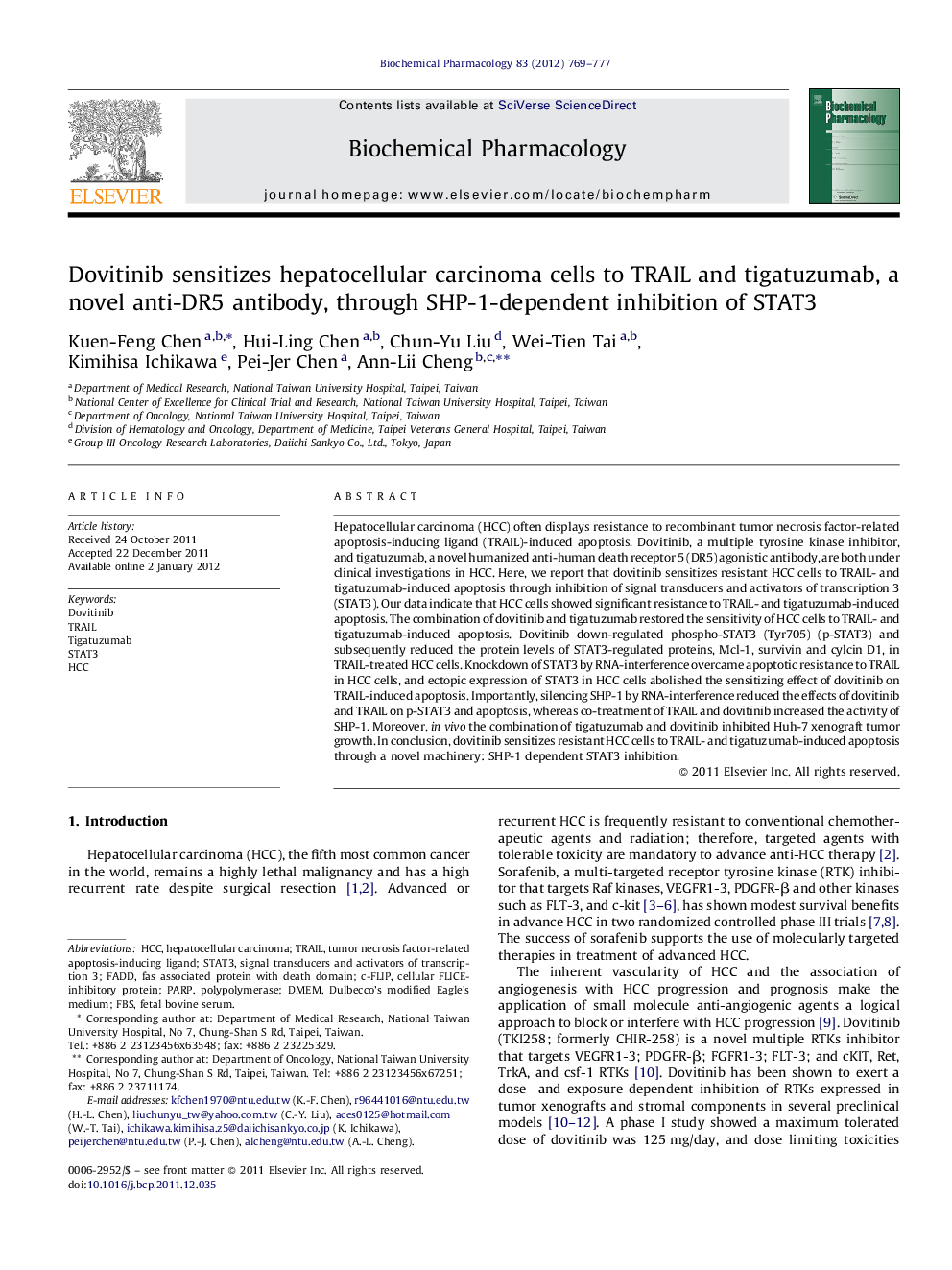| Article ID | Journal | Published Year | Pages | File Type |
|---|---|---|---|---|
| 2513521 | Biochemical Pharmacology | 2012 | 9 Pages |
Hepatocellular carcinoma (HCC) often displays resistance to recombinant tumor necrosis factor-related apoptosis-inducing ligand (TRAIL)-induced apoptosis. Dovitinib, a multiple tyrosine kinase inhibitor, and tigatuzumab, a novel humanized anti-human death receptor 5 (DR5) agonistic antibody, are both under clinical investigations in HCC. Here, we report that dovitinib sensitizes resistant HCC cells to TRAIL- and tigatuzumab-induced apoptosis through inhibition of signal transducers and activators of transcription 3 (STAT3). Our data indicate that HCC cells showed significant resistance to TRAIL- and tigatuzumab-induced apoptosis. The combination of dovitinib and tigatuzumab restored the sensitivity of HCC cells to TRAIL- and tigatuzumab-induced apoptosis. Dovitinib down-regulated phospho-STAT3 (Tyr705) (p-STAT3) and subsequently reduced the protein levels of STAT3-regulated proteins, Mcl-1, survivin and cylcin D1, in TRAIL-treated HCC cells. Knockdown of STAT3 by RNA-interference overcame apoptotic resistance to TRAIL in HCC cells, and ectopic expression of STAT3 in HCC cells abolished the sensitizing effect of dovitinib on TRAIL-induced apoptosis. Importantly, silencing SHP-1 by RNA-interference reduced the effects of dovitinib and TRAIL on p-STAT3 and apoptosis, whereas co-treatment of TRAIL and dovitinib increased the activity of SHP-1. Moreover, in vivo the combination of tigatuzumab and dovitinib inhibited Huh-7 xenograft tumor growth. In conclusion, dovitinib sensitizes resistant HCC cells to TRAIL- and tigatuzumab-induced apoptosis through a novel machinery: SHP-1 dependent STAT3 inhibition.
Graphical abstractFigure optionsDownload full-size imageDownload as PowerPoint slide
